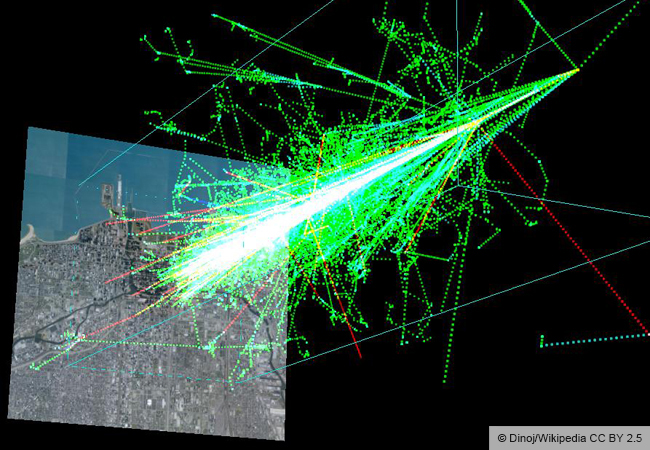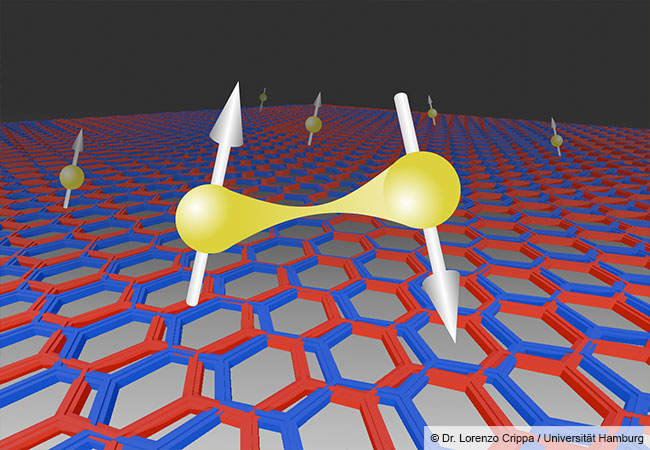 Differences in intelligence have so far mostly been attributed to differences in specific brain regions. However, are smart people’s brains also wired differently to those of less intelligent persons? A new study published by researchers from Goethe University Frankfurt (Germany) supports this assumption. In intelligent persons, certain brain regions are more strongly involved in the flow of information between brain regions, while other brain regions are less engaged.
Differences in intelligence have so far mostly been attributed to differences in specific brain regions. However, are smart people’s brains also wired differently to those of less intelligent persons? A new study published by researchers from Goethe University Frankfurt (Germany) supports this assumption. In intelligent persons, certain brain regions are more strongly involved in the flow of information between brain regions, while other brain regions are less engaged.
Understanding the foundations of human thought is fascinating for scientists and laypersons alike. Differences in cognitive abilities – and the resulting differences for example in academic success and professional careers – are attributed to a considerable degree to individual differences in intelligence. A study just published in “Scientific Reports” shows that these differences go hand in hand with differences in the patterns of integration among functional modules of the brain. Kirsten Hilger, Christian Fiebach and Ulrike Basten from the Department of Psychology at Goethe University Frankfurt combined functional MRI brain scans from over 300 persons with modern graph theoretical network analysis methods to investigate the neurobiological basis of human intelligence.
Already in 2015, the same research group published a meta-study in the journal “Intelligence”, in which they identified brain regions – among them the prefrontal cortex – activation changes of which are reliably associated with individual differences in intelligence. Until recently, however, it was not possible to examine how such ‘intelligence regions’ in the human brain are functionally interconnected.
Earlier this year, the research team reported that in more intelligent persons two brain regions involved in the cognitive processing of task-relevant information (i.e., the anterior insula and the anterior cingulate cortex) are connected more efficiently to the rest of the brain (2017, “Intelligence”). Another brain region, the junction area between temporal and parietal cortex that has been related to the shielding of thoughts against irrelevant information, is less strongly connected to the rest of the brain network. “The different topological embedding of these regions into the brain network could make it easier for smarter persons to differentiate between important and irrelevant information – which would be advantageous for many cognitive challenges,” proposes Ulrike Basten, the study’s principle investigator.
In their current study, the researchers take into account that the brain is functionally organized into modules. “This is similar to a social network which consists of multiple sub-networks (e.g., families or circles of friends). Within these sub-networks or modules, the members of one family are more strongly interconnected than they are with people from other families or circles of friends. Our brain is functionally organized in a very similar way: There are sub-networks of brain regions – modules – that are more strongly interconnected among themselves while they have weaker connections to brain regions from other modules. In our study, we examined whether the role of specific brain regions for communication within and among brain modules varies with individual differences in intelligence, i.e., whether a specific brain region supports the information exchange within their own ‘family’ more than information exchange with other ‘families’, and how this relates to individual differences in intelligence.”
The study shows that in more intelligent persons certain brain regions are clearly more strongly involved in the exchange of information between different sub-networks of the brain in order for important information to be communicated quickly and efficiently. On the other hand, the research team also identified brain regions that are more strongly ‘de-coupled’ from the rest of the network in more intelligent people. This may result in better protection against distracting and irrelevant inputs. “We assume that network properties we have found in more intelligent persons help us to focus mentally and to ignore or suppress irrelevant, potentially distracting inputs,” says Basten.
The causes of these associations remain an open question at present. “It is possible that due to their biological predispositions, some individuals develop brain networks that favor intelligent behaviors or more challenging cognitive tasks. However, it is equally as likely that the frequent use of the brain for cognitively challenging tasks may positively influence the development of brain networks. Given what we currently know about intelligence, an interplay of both processes seems most likely.”
[dt_call_to_action content_size=“small“ background=“fancy“ line=“true“ animation=“fadeIn“]
Publication: Hilger, K., Ekman, M., Fiebach, C., & Basten, U. (2017). Intelligence is associated with the modular structure of intrinsic brain networks. Scientific Reports. (DOI:10.1038/s41598-017-15795-7)
Further references: Basten, U., Hilger, K., & Fiebach, C. J. (2015). Where smart brains are different: A quantitative meta-analysis of functional and structural brain imaging studies on intelligence. Intelligence, 51, 10-27. | Hilger, K., Ekman, M., Fiebach, C., & Basten, U. (2017). Efficient hubs in the intelligent brain: Nodal efficiency of hub regions in the salience network is associated with general intelligence. Intelligence, 60, 10-25.
[/dt_call_to_action]
Source: Press Release 22/11/2017







